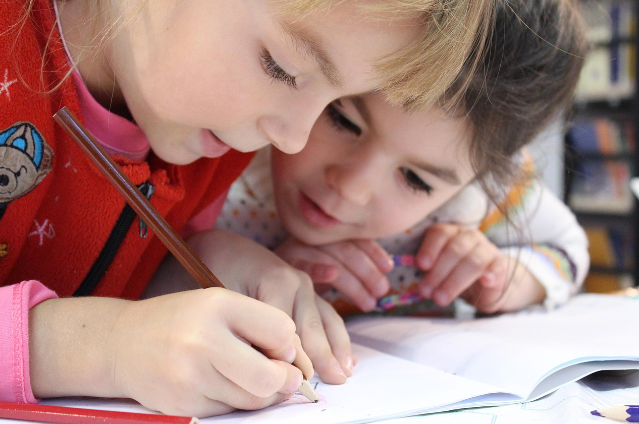
When we talk about the life of a human, it's divided into distinct stages. According to UNICEF, these stages include— Early childhood (zero to 8 years of age), Middle childhood (9 to 11 years), Adolescence (10 to 19 years), and Adulthood (19 and above). Here, we'll focus on early childhood care and education, a period of rapid growth and development. The brain is at its peak, and these intense preschool years provide a strong foundation in cognitive, social, mental, psychological, physical, emotional, and motor development of a child. This period is critical for developing essential skills like reading, writing, walking, speaking, and social interaction, all of which significantly impact a child's academic performance.
Early Childhood Care and Education (ECCE) is an important area of study in human development. It’s a branch of education theory that relates to teaching children from birth to 8 years, also known as nursery or early education.
ECCE (Early Childhood Care and Education)
It's a national policy formed in 2013, offers services like language, cognitive, socio-economic, and motor development. These are provided by both public and private providers through creches, Anganwadis, play schools, kindergartens, and home-based care. Their purpose is to prepare children for elementary school. ECCE can be provided formally through these centers or informally through family, friends, and neighbors. In the Indian context, ECCE covers programs for infants (0-3 years), preschoolers (3-6 years), and primary school children (6-8 years).
Why does ECCE matter?
Early experiences shape a child's mind, attitudes, and behaviors. A stimulating environment, good nutrition, and stable relationships lead to positive development. ECCE has a positive impact on a child's health, education, and emotional development. It's a right in itself, and learning begins at birth, creating a base for all subsequent learning. The early years are the foundation for a person's habits, attitudes, interests, and overall personality. The care and nurture given during this period have a lasting impact on growth and the ability to adjust and regulate emotions. According to neuroscience research, 90% of brain development occurs by age six, making appropriate care and stimulation crucial. ECCE helps children acquire skills for a smooth transition to primary school, improves education outcomes by reducing drop-out rates, and promotes girls' education by providing care for younger siblings. It also helps prevent developmental delays and supports children from disadvantaged backgrounds. Furthermore, it offers emotional support and helps meet the needs of changing family structures by providing a support system for working parents. ECCE centers also promote social equality by bringing children from different backgrounds together.
Objectives of ECCE
According to the NCF (2005) Position Paper on Early Childhood Education, the basic objectives of ECCE are the holistic development of the child, preparation for school, and providing support services for women and children.
Basic concepts:
Based on developmental changes, early childhood can be divided into two periods: birth to 3 years and 3 to 8 years.
The period from birth to 3 years, also known as infancy, is a time of intense dependence on adults. During their second year, infants develop a "sense of self" and the ability to differentiate themselves from others. They form attachments and recognize family members, and common behaviors include separation anxiety and fear of strangers. Their growth is rapid as they learn to walk and manage their bodies.
Conclusion
Investing in Early Childhood Care and Education (ECCE) is a social, economic, and moral responsibility and not just a social reform. The first eight years of life are the very foundation upon which all later learning and personal development rests, and not merely a prelude to formal schooling. Neuroscience, psychology, and education research all emphasize that the quality of experiences in these years profoundly shapes a child’s thinking ability, learning, adapting, and interacting ability with the world. When children are given nurturing care, balanced nutrition, and stimulating learning opportunities, they develop the resilience, confidence, and cognitive skills that are necessary to succeed in life and academics.
ECCE also has a ripple effect on society. It reduces inequalities by ensuring that children from disadvantaged backgrounds are not left behind. It improves school readiness, lowers dropout rates, and contributes to the empowerment of women by supporting working mothers. Moreover, it fosters inclusivity, as children from diverse social and cultural groups learn together, which breaks the cycles of discrimination and fosters mutual respect. By emphasizing holistic development, cognitive, social, emotional, and physical. ECCE strengthens the overall fabric of society and produces healthier, more capable, and socially responsible citizens.
In the Indian context, ECCE is not merely a program but a lifeline that bridges the gap between home and school. With initiatives like Anganwadis, play schools, and community-based care, ECCE recognizes the diversity of children’s needs and provides structured yet flexible learning environments. However, policy alone is not enough; the success of ECCE depends on proper implementation, trained educators, community involvement, and consistent investment of resources.
Ultimately, early childhood is a one-time window of opportunity that cannot be reclaimed later in life. The cost of neglecting it is far greater than the investment required. As the saying goes, “If we invest in the first years of life, we will save in the next fifty.” Thus, ECCE must be treated not as an optional service but as an essential right and a long-term investment in human capital. A society that prioritizes its youngest members secures its own future—because the children of today will shape the destiny of tomorrow.
